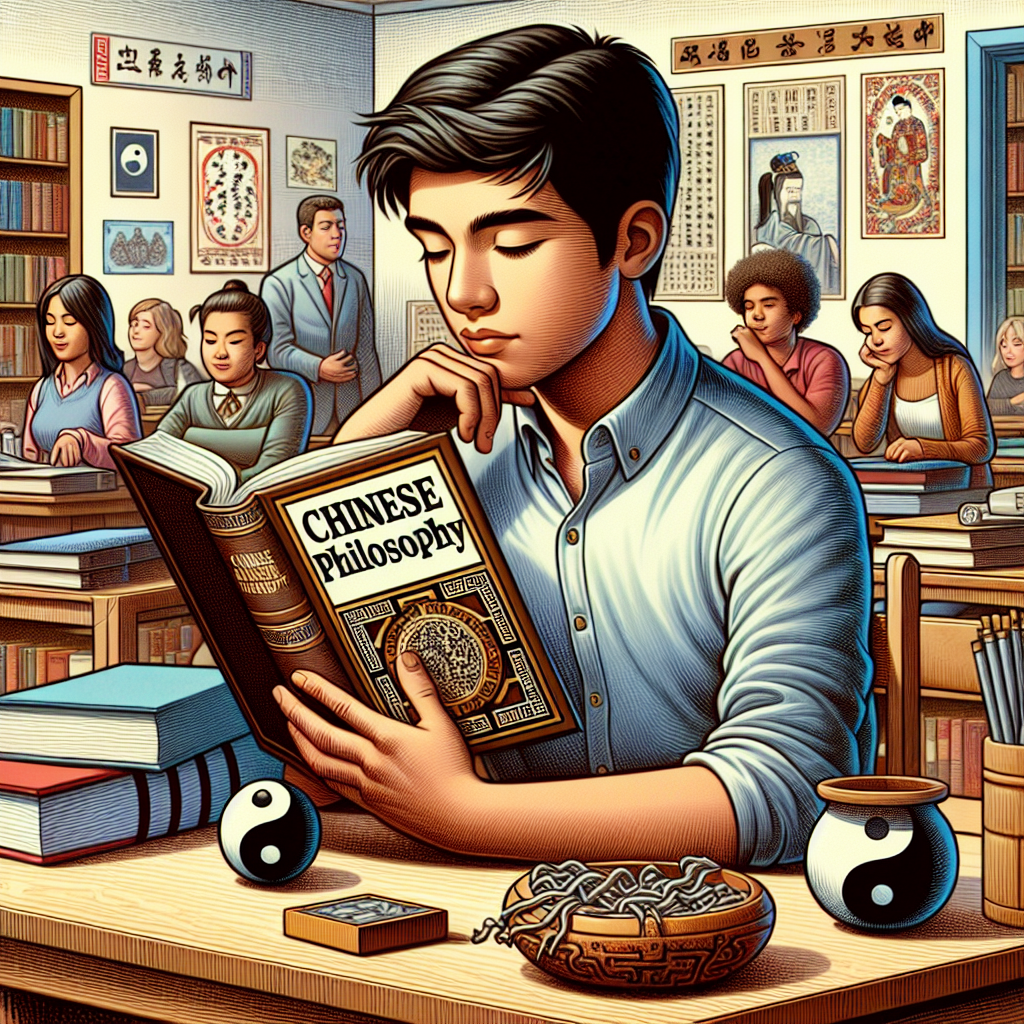My Love of Chinese Philosophy in High School

During my high school years, I spent considerable time contemplating life and shaping my character. Even as a science student, I was drawn to the arts because they allowed me to expand my horizons without the pressure of exams. Chinese literature, in particular, had a profound impact on me due to its enduring wisdom encapsulated in ancient poetry and essays.
One story that left an impression on me was about Su Qin, a strategic advisor during ancient China's Warring States period. Despite facing disgrace and disrespect from his family after failing to win over the Emperor of Qin, Su Qin locked himself away to study his teacher's books. Through sheer willpower and sacrifice, he eventually convinced six kingdoms to unite against Qin, thereby turning his life around. His story emphasized the inescapable role of money and status in society and motivated me to strive for success.
Du Fu, a poet from the Tang dynasty, was another influence. His compassion for others, despite his personal hardships, inspired me to be more selfless and altruistic. Du Fu's dream was to build a sanctuary for scholars, a dream so compelling that he would gladly give his life to see it fulfilled. His philosophy continually fuels my desire to contribute to the greater good.
Confucian philosophy has also had a significant impact on me. The work of Tang Junyi, a renowned Chinese philosopher who founded my university, resonated with me. He focused on human-centered ethics, asserting that the core of Chinese culture is humanity rather than divinity. He outlined four essential human virtues—compassion, justice, respect, and moral discernment—which guide us in living dignified lives. This philosophy has shaped my belief in the importance of moral integrity.
Taoism, too, has been influential, providing balance and perspective, especially during my low moments. It encourages me to see things holistically and to value my unique contributions to the world. Sun Zi's "The Art of War," a text shaped by Taoist principles, has been a source of strategic wisdom for me.
However, Chinese philosophy also serves as a cautionary tale. Legalism, a philosophy emphasizing strict governance, triumphed over others during the unification of China, leading to a short-lived but oppressive regime. This example underscores the importance of balance and the perils of overlooking human values, a lesson particularly relevant in the context of current global tensions.
While I majored in science, the teachings from Chinese literature, philosophy, and history have been a vital part of my education. Science and democracy, identified by intellectuals of the late Qing dynasty as the two pillars that could save China, resonate with me as essential forces for good. Through the scientific method and the democratic process, I believe we can work toward a more enlightened and harmonious world.
These lessons from Chinese philosophy have significantly shaped my worldview, influencing not only how I understand life but also how I strive to live it.